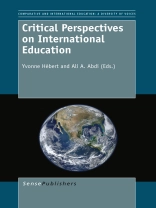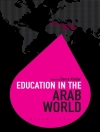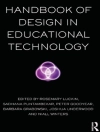In rapidly globalizing spaces of life, any research project on international education would necessarily have multi-directional emphases, with the quality of observations and analyses reflecting the expanding political, economic and cultural intersections which characterize this potentially promising century. To respond to these emerging learning and living contexts of our world, this book brings together some of the most active and established scholars in the field. As such, the book represents important epistemic interventions that analyze and critique the institutional, socio-economic, linguistic and pedagogical platforms of international education. As the locus of international education cannot be detached from the pragmatics of social development, the specific recommendations embedded in this book expand the debates and broaden the boundaries of learning projects that should enhance the lives of people, especially those who are continually marginalized by the regimes of globalization. Thus, the book actively advocates for possibilities of human well-beings via different formats of education in diverse locations of life. “Critical Perspectives on International Education offers a historically comprehensive, intellectually honest, and perspective-rich scholarly exploration of a new education-globalization dynamic. This book courageously offers up diverse voices, gathered into a robust and useful conversation regarding global education. This book adds greatly to understanding why educational marketplaces must be driven by principles and practices that empower diverse peoples, to secure sustainable knowledge benefits that contribute to personal, local, national and international well-being. This critical perspective reader will engage scholars, researchers and citizens.” Jim Paul, University of Calgary “In the current intensifications of globalization and its resulting inequalities, it is crucial to better understand the role of knowledge creation andknowledge dissemination. Should knowledge be only a commodity to be sold in the market and a tool to increase economic capital, or should it be a shared sociocultural capital aimed at improving democracy and the common good? In Critical Perspectives on International Education, Yvonne Hébert and Ali A. Abdi assemble an impressive array of contributions from all over the world that address this question from a variety of critical perspectives and case studies. I recommend this book to everyone interested in the connections between education, citizenship development and human well-being.” Daniel Schugurensky, Arizona State University
Table des matières
Foreword; Acknowledgements; Notes on Contributors; 1. Critical Perspectives on International Education: Redefinitions, Knowledge-making, Mobilities and Changing the world; 2. Making Sense of Internationalization: A Critical Analysis; 3. The Ideological and Economic Repositioning of Universities; 4. Exploring Partnership Principles and Ethical Guidelines for Internationalizing Post-secondary Education; 5. Japanese Aesthetics and English Education in the Global Age; 6. From a Global Education ‘Idiot’ Teacher to a Competent Global Educator; 7. Redesign or Rearrangement? The Intensification of Teacher Education and the Recognition of Equity, Diversity and Internationalization; 8. Intensification of Faculty Engagement in the Internationalisation of Adult Education: A Comparative Study of Canada and the United States; 9. Internationalizing Postsecondary Education: Opportunities, Possibilities and challenges; 10. The Administration of English as a Second Language (ESL) Program in Higher Education: Striking the Balance between Generating Revenue and Serving Students; 11. Managing a New Diversity on a Small Campus: The Case of l’Université de Moncton (Canada); 12. Student Mobility in Europe, Tunisia and French-speaking Canada: Global Trends and Social Fragmentation; 13. Tunisian Students Abroad: New Routes to Knowledge; 14. The Cosmopolitan ‘Bildung’ of Erasmus Students’ Going Abroad; 15. Teaching China to the Chinese: Rich Opportunity for Critical Reflection or Neo-Colonial Conceit?; 16. Student Mobility and the Canadian Francophonie: Individual and Community Issues; 17. Second Generation Youth and Mobilities of Mind, Body and Boundary; Yvonne Hébert, Lori Wilkinson, and Mehrunissa Ali 18. English as a Tool of Neo-Colonialism and Globalization in Asian Contexts; 19. Teachers and Students’ Perceptions of Secondary Reform and Implementation: A China and Canada Comparison; 20. Educating the World: Teachers and their Work as Defined by the United Nations Educational, Scientific and Cultural Organization (UNESCO); 21. The Role of Education in the New Democracy of Bhutan; 22. Building a Civil Society in Post-Conflict Kosovo: Educators and Civil Society; 23. Indian Women Educators: Freedom Fighters with a Vision; 24. The Owl Spreads its Wings: Global and International Education within the Local from Critical Perspectives; 25. Intensive Globalizations of African Education: Re-Interrogating the Relevance of Structural Adjustment Programs (SAPs); 26. Development and Open Access; Index.












